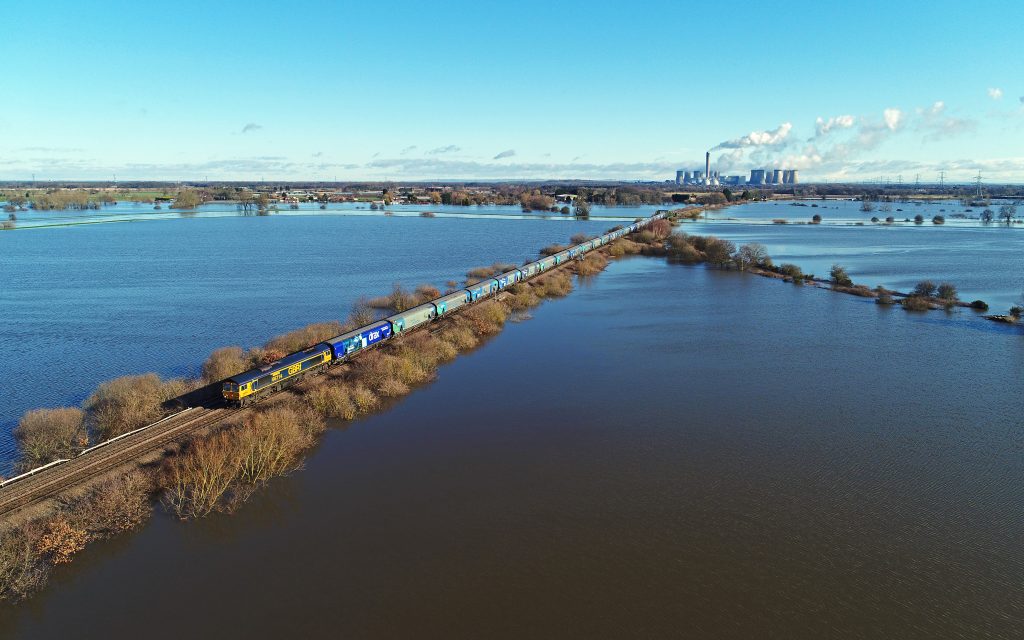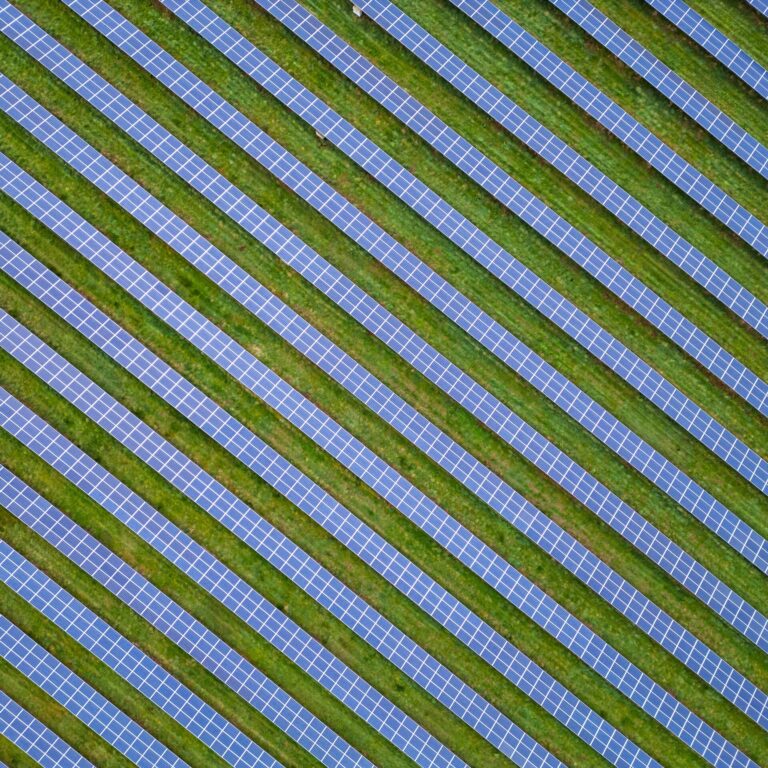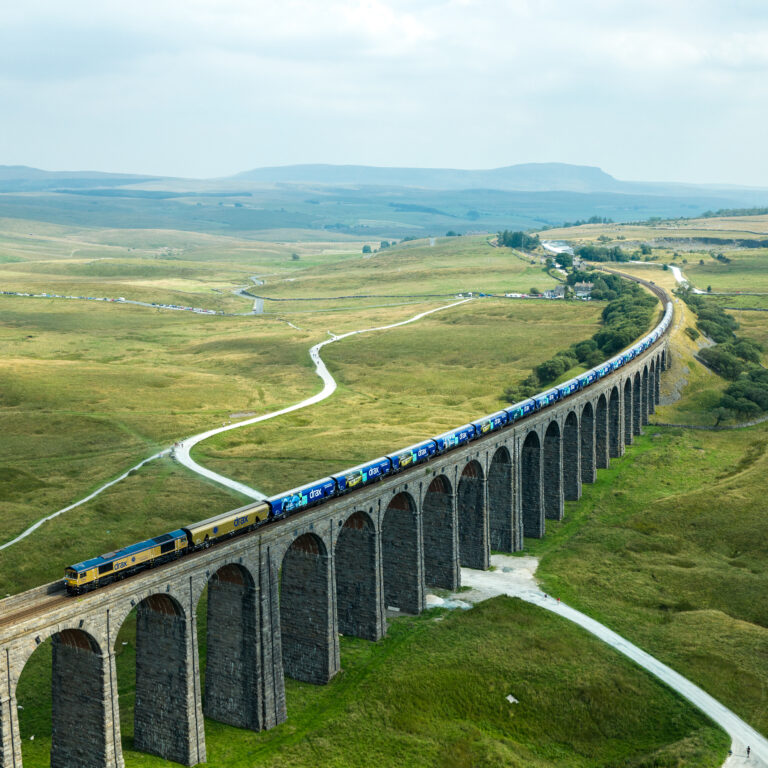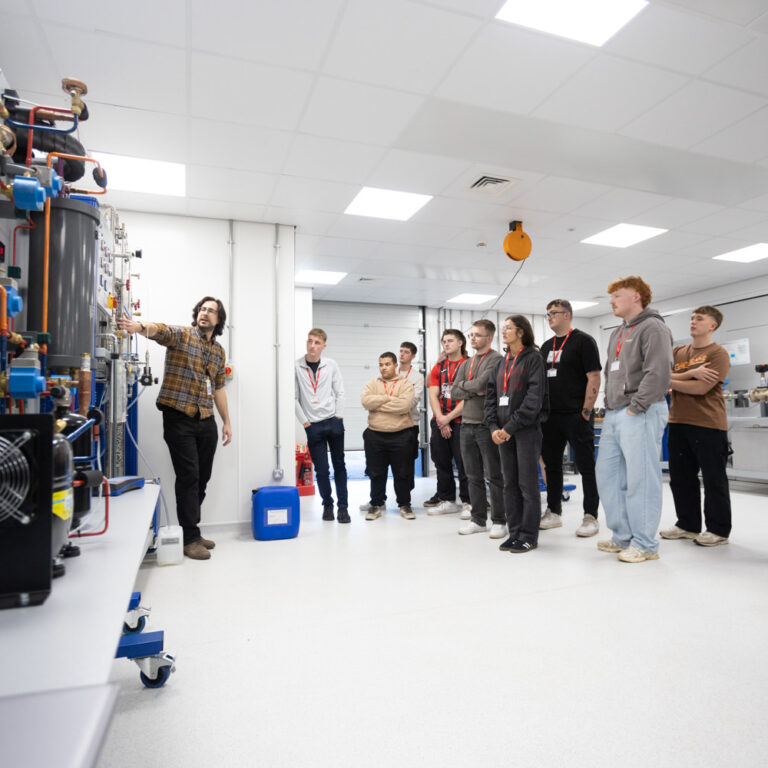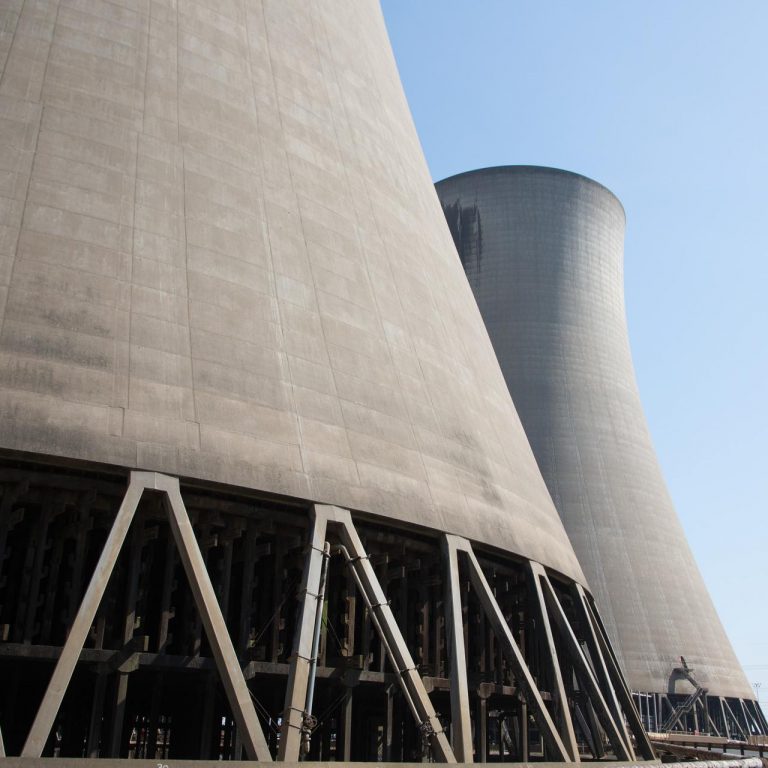Severe storms and flooding in the area near Drax in February resulted in damage to the rail tracks. GBRf has been working closely with Drax to reschedule rail deliveries and maximise capacity on the rail link while the repairs are completed – maintaining the vital supplies of biomass needed for Drax to generate enough renewable electricity for up to four million households.
The rail planners who helped rework the timetable to accommodate the new train timings combined forces with train drivers, signal controllers, Network Rail train marshals and Drax logistics specialists to speedily restore flows of sustainable biomass to the power station.
John Smith, Managing Director of GB Railfreight, said:
“GB Railfreight is playing its part in supporting the UK’s Covid-19 response by helping to keep essential services running across the country. Our partnership with Drax Power Station in Yorkshire is proof of this. We are delivering vital supplies of sustainable biomass which are transported across the country by rail to Drax, which supplies five percent of the UK’s electricity needs.
“GB Railfreight stops at nothing to get vital supplies from one part of the country to the other – as we saw during the recent floods near Drax. We will be redoubling our efforts to ensure we keep the country going during these trying times.”
Drax CEO Will Gardiner said:
“The teams who are working tirelessly across the UK rail freight system and also within our power stations to keep the lights on and keep the country going during this Covid-19 crisis are doing a tremendous job.
“As teams work around the clock to keep generating the power the country needs, their health, safety and wellbeing are vital. Across all our sites we have implemented strategies to reduce the chances of spreading the virus and have operational plans in place to ensure continued delivery of power into the grid.
“GBRf’s rail deliveries are an important part of our global supply chain for sustainable biomass that supports thousands of jobs and has delivered economic growth across the north of England and in the US south.”
Nick King, Group Director, Network Services for Network Rail, said:
“The railway plays a crucial part in keeping Britain running, particularly in these challenging times and strong teamwork across the rail industry is absolutely key in keeping freight services moving.
“Recent flooding in this area brought additional challenges to keeping services moving, however the hard work and dedication of our people has meant that vital supplies of sustainable biomass have continued to be transported.”
-ENDS-
Picture caption:
A GBRf biomass train makes its way from Drax Power Station after February floods. By Chris Davis [Click to view/download]
Notes to editors:
- GBRf runs up to 24 trains a week from the Port of Tyne to Drax Power Station and up to 38 trains a weekfrom Liverpool.
- GBRf provide two 23-lidded hopper wagon sets dedicated to delivering sustainable biomass to Drax in addition to the four 25-lidded hopper wagons which will deliver the 38 trains per week from Merseyside. GBRf wagons carry a total of around 1,200 tonnes of sustainable biomass per train, while Drax’s higher cube wagons carry around 1,650 tonnes of biomass per train.
- Drax has a network of port and rail infrastructure that runs from coast to coast and includes capacity at the Port of Tyne, Hull, Liverpool and Immingham. Having import capacity at east and west coast ports adds resilience to Drax’s supply chain and operations.
- Drax’s operations support 5,700 jobs across its supply chains in the North of England and deliver £600m for the region’s economy.
- The UK government has identified Drax as critical national infrastructure. This includes the infrastructure and logistics related to the transportation of biomass to the power station, such as ports and rail.
- The section of rail line which was affected by flooding in February was between Hensall Junction and Drax Power Station near Selby, in North Yorkshire.
- Drax donated £25,000 to help those worst affected by the flooding in the communities local to its power station, after the River Aire burst its banks.
Media contacts:
Selina Williams
Drax Group Media Manager
E: [email protected]
T: 07912 230 393
Dan Julian
Cicero/AMO
E: [email protected]
T: 07919 458 407
About GB Railfreight
Founded in 1999 and headquartered in London, United Kingdom, GB Railfreight is the third largest rail freight operator in the United Kingdom, with a turnover expected to exceed £200 million in 2019. GB Railfreight is one of the fastest growing companies in the railway sector and transports goods for a wide range of customers.
For further information, please contact:
[email protected]
Visit www.gbrailfreight.com
About Drax
Drax Group’s purpose is to enable a zero carbon, lower cost energy future and in 2019 announced a world-leading ambition to be carbon negative by 2030.
Its 2,900-strong employees operate across three principal areas of activity – electricity generation, electricity sales to business customers and compressed wood pellet production.
Power generation:
Drax owns and operates a portfolio of flexible, low carbon and renewable electricity generation assets across Britain. The assets include the UK’s largest power station, based at Selby, North Yorkshire, which supplies five percent of the country’s electricity needs.
Having converted two thirds of Drax Power Station to use sustainable biomass instead of coal it has become the UK’s biggest renewable power generator and the largest decarbonisation project in Europe.
Its pumped storage, hydro and energy from waste assets in Scotland include Cruachan Power Station – a flexible pumped storage facility within the hollowed-out mountain Ben Cruachan. It also owns and operates four gas power stations in England.
Customers:
Drax owns two B2B energy supply businesses:
- Haven Power, based in Ipswich, supplies electricity and energy services to large Industrial and Commercial sector businesses.
- Opus Energy, based in Oxford, Northampton and Cardiff, provides electricity, energy services and gas to small and medium sized (SME) businesses.
Pellet production:
Drax owns and operates three pellet mills in the US South which manufacture compressed wood pellets (biomass) produced from sustainably managed working forests. These pellet mills supply around 20% of the biomass used by Drax Power Station in North Yorkshire to generate flexible, renewable power for the UK’s homes and businesses.
For more information visit www.drax.com/uk






